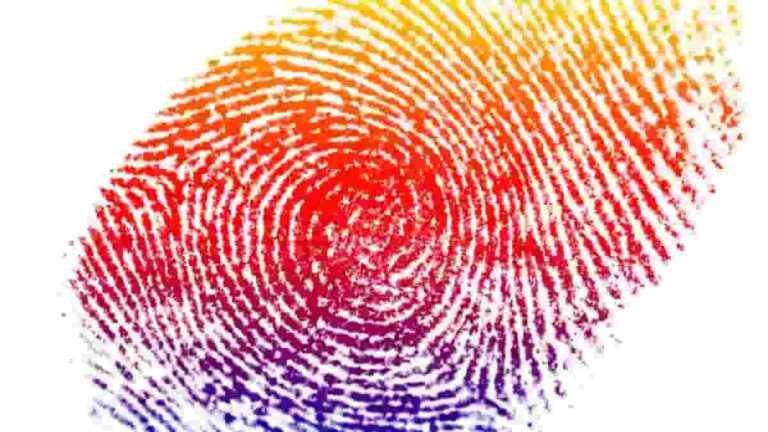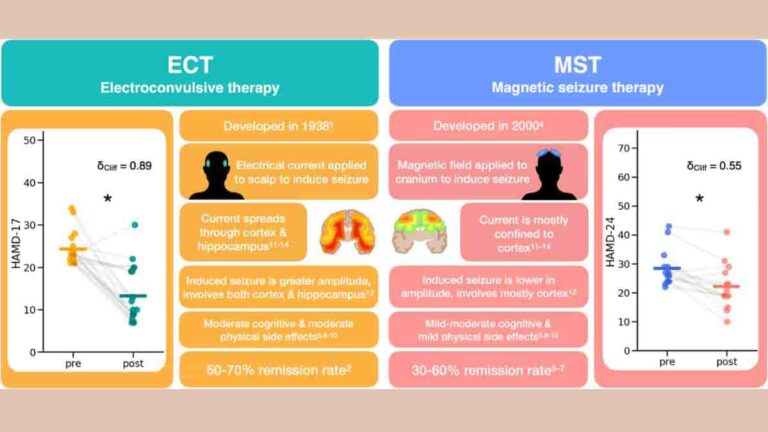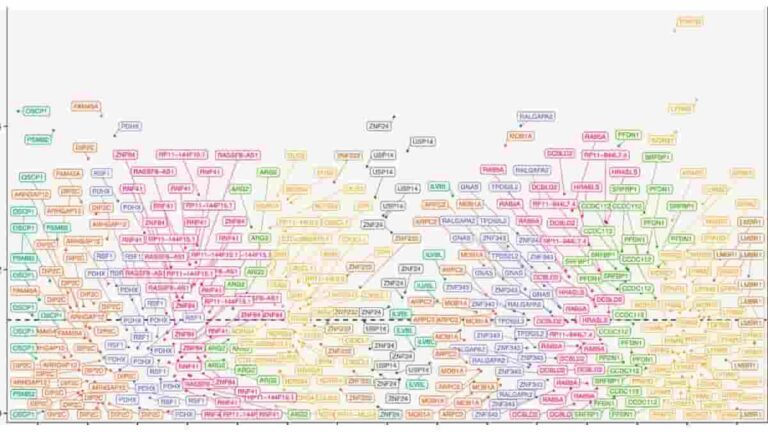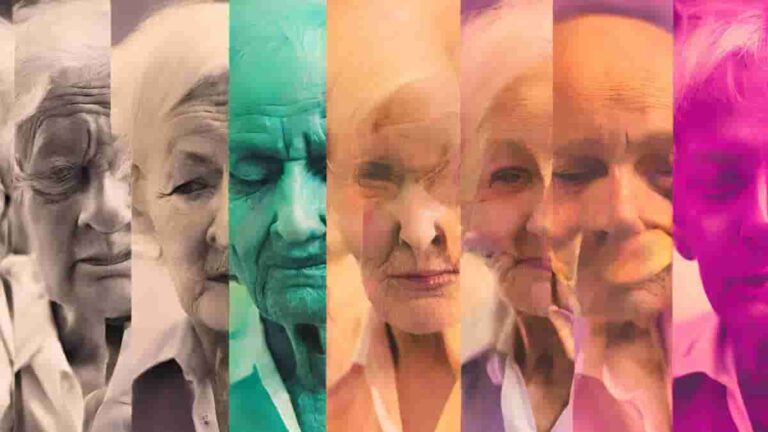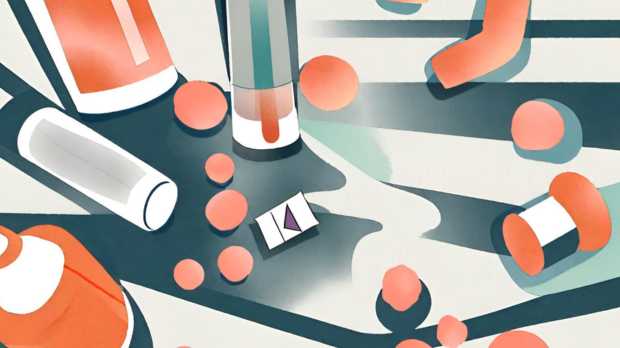Researchers describe new methods for precisely locating potential biomarkers in teenage brains that are capable of accurately forecasting cognitive growth and mental health problems. Their new study is the first large-scale analysis of its kind, in which researchers analyzed functional network connectivity (FNC) across scans and identified associations with a variety of health measures in…
Category: Psychiatry
Electroconvulsive Therapy Benefits Stem From Aperiodic Activity Boost
Electroconvulsive therapy (ECT), formerly known as electroshock therapy, involves producing a brief seizure in the brain with regulated doses of electricity. While ECT is extremely helpful for certain mental diseases, particularly depression, the reasons for its effectiveness have long perplexed psychiatrists and neuroscientists. University of California, San Diego researchers may now have the solution. Aperiodic…
Delayed Sleep Phase Disorder Comorbidities
Delayed sleep phase disorder (DSPD), also known as delayed sleep phase syndrome and delayed sleep-wake phase disorder, is the delay of a person’s circadian rhythm in comparison to societal norms. Elliot D. Weitzman and coworkers from Montefiore Medical Center initially formally identified it in 1981. It is responsible for 7-13% of persistent insomnia complaints. Among…
Suicide Risk Linked to Brain Inflammation, Loss of Protective Mechanisms
In a first-of-its-kind study, researchers found that lost brain protection systems and overactive inflammation may contribute to the risk of suicide. The results provide additional justification for investigating the potential of anti-inflammatory drugs as a preventive measure, particularly in scenarios of early suicidal ideation detection. “As suicide rates continue to rise, we must develop additional evidence-based strategies…
Could a Pre-trauma Treatment Prevent Post-traumatic Stress Disorder?
When people encounter trauma, medication can help prevent or minimize post-traumatic stress disorder by reducing overly powerful memories that produce severe flashbacks and nightmares. However, the treatment is only effective if the pills are taken immediately after a stressful encounter. An enhanced approach that could prevent PTSD-strength memories from ever arising is possible, according to…
Mild Cognitive Impairment Undiagnosed In Over 7 Million Americans
For many people, forgetting your keys or having difficulty planning tasks may appear to be a typical part of aging. However, those gaps may be signs of something more serious: mild cognitive impairment, or MCI, which could be an early sign of Alzheimer’s disease. Unfortunately, because most people with MCI are unaware of it, they…
Adults with ADHD At Higher Risk of Developing Dementia
In comparison to adults without attention-deficit/hyperactivity disorder (ADHD), adults with ADHD have a nearly three-fold increased risk of developing dementia, a Rutgers study indicates. Michal Schnaider Beeri, head of the Herbert and Jacqueline Krieger Klein Alzheimer’s Research Center at Rutgers Brain Health Institute (BHI), coauthored the study, which was published in JAMA Network Open. It…
Changes in Autism Trait Severity Have Varied Mental Health Effects
Researchers from UC Davis Health cast new light on the correlation between autism traits and middle childhood mental health through a long-term study. The research paper establishes a correlation between alterations in fundamental autism traits and the occurrence of comorbid mental health issues among elementary school-aged children. “Our findings suggest that different aspects of a…
Psychotherapy for Substance Abuse Disorders Only Moderately Effective
At best, psychotherapeutic methods are only moderately effective in assisting individuals with substance abuse or addiction issues to reduce their dependence, a new study concludes. The research was a meta-review of the literature by a team led by Alexandre Dumais, a professor in the Department of Psychiatry and Addiction at Université de Montréal and a…
